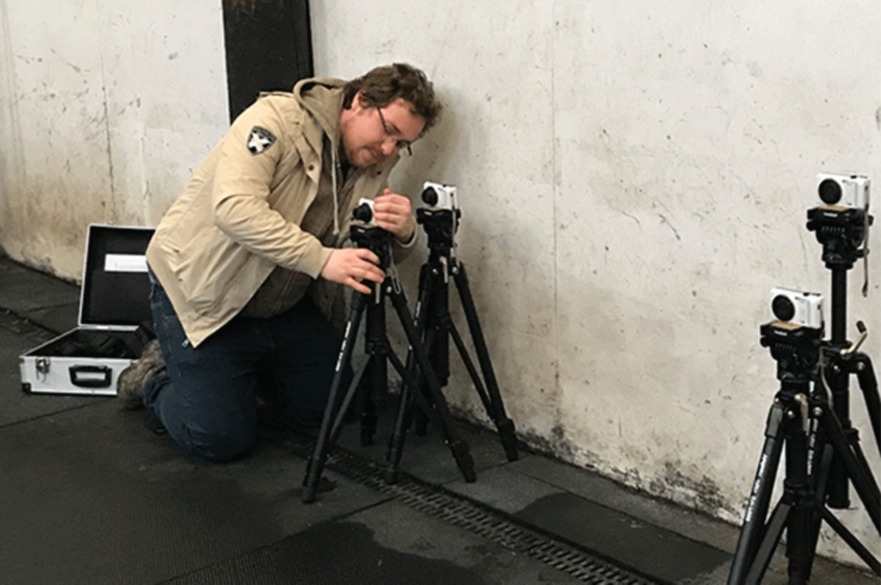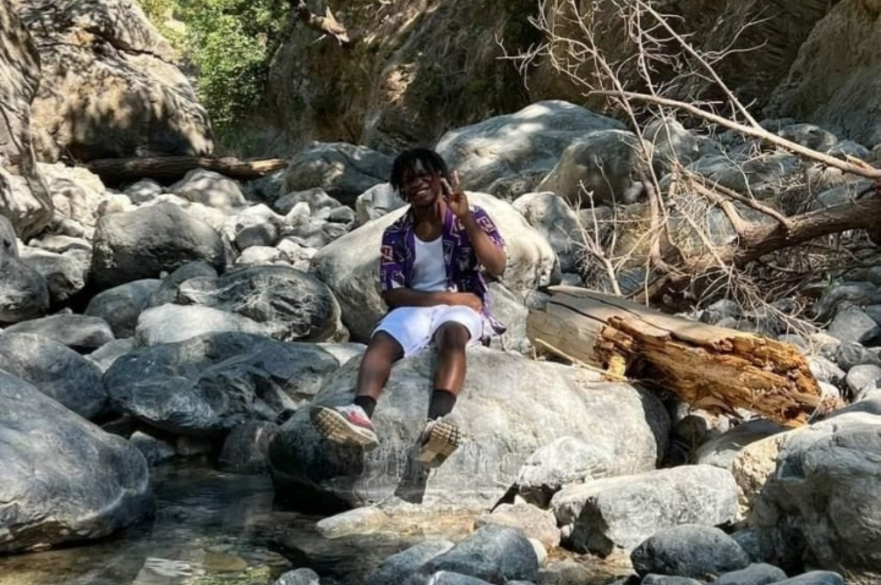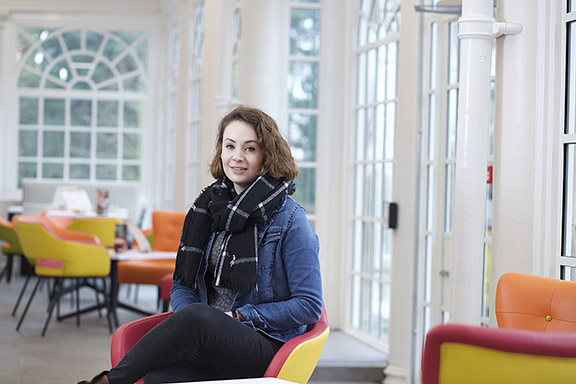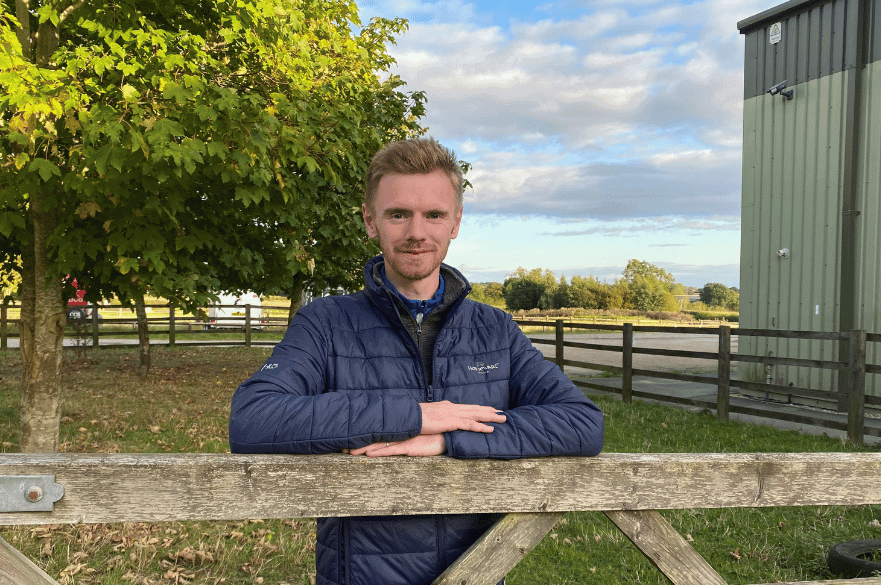
The whole idea of working on something that nobody has ever researched before speaks to my curious nature. I can’t recommend it enough!
More about Jack
Jack graduated from NTU in 2014 and is now completing a master’s degree in Veterinary Physiotherapy whilst working freelance as a research consultant.
Q: Why did you decide to study at NTU?
A: I went to a few different universities for open days, but at the NTU Brackenhurst campus I really loved the atmosphere and the feeling that there was always something going on even when it was quiet. Also, the year groups were smaller than other universities, so the teaching felt more personalised.
Q: Tell us about your involvement in research projects during your time at NTU..
A: I was involved with low level Show Jumping at the time and wanted to compete at a higher level. My intention at the start of the course was to become a very knowledgeable trainer, rider and dealer. As I progressed through the course, I started to get involved with research projects and joined a project on the Unwanted Horse led by lecturer Cassie White in conjunction with a university in Canada. Being a first year I wasn’t as helpful as the second and third years, but I found that the research resonated with me.
Eventually, I took the option of doing my dissertation on a research project using eye tracking software. Whilst it was frantic and very stressful, designing and undertaking an entire project all by myself was amazing. The whole idea of working on something that nobody has ever researched before speaks to my curious nature. I can’t recommend it enough!
Q: What makes you smile when you look back at your time at NTU?
A: I have a lot of fond memories from my time at university; going to the bar on campus, the varsity matches, Domino’s Tuesday in the flat. My course friends were just so much fun to be around. I even have a framed picture of one of our nights out looking over the pond in Brackenhurst, and a lot more pictures that are less idyllic!
Q: What attracted you to your field of work and research?
A: My research work was initially with the Animal Health Trust, where I did a lot of welfare work. We involved veterinary physiotherapists with our work and I saw how they not only impact the health and welfare of animals, but also have a major part to play in research. Having worked with some top vets in research, I found that it was a great way to include my research work and become my own boss due to my riding ability and interests in animal welfare.
Q: Can you tell us about any challenges you have overcome? What would your advice be for students facing similar challenges?
A: I’m not naturally an academic individual - I’m a smart guy, but I’m more practical. At the same time I’m dyspraxic, which can severely impact my physical abilities and coordination, so I have had to take extra time to work out how to function in this manner. Sometimes it takes doing silly things, like jumping around in my office pretending to be a horse, to reach the right outcome with my colleagues. I found my niche using technology and computers to help me understand and assess new concepts. It has a toll on my mental health sometimes, but recognising areas where you’re not as proficient as others can really help.
My advice would be to work with a group and find your niche. We all have different areas where we excel. Even when I joined an established team, I brought a view point that others didn’t have and consequently I learnt from them.
Q: What has been the biggest highlight and biggest challenge of your career so far?
A: My highlight has been managing an entire section of a massive research project. I was in control of data collection and all the responsibility fell on me. I accompanied my work to the Horses Inside Out conference and was able to explain our research to a bunch of practitioners.
Finding new ways to record and analyse information is challenging. It’s a difficult problem-solving exercise as a large amount of my research has been on Water Treadmills. Recording limb movements under water has a million difficult aspects.
Q: If you had a time machine, what would you go back and tell yourself at university?
A: Take everything you can from the experience. It’s not school or college and you will only learn as much as you actively try. The lecturers won’t hand you the answers, it’s a discussion.
Q: What’s next in your career?
A: To start, my business as a Veterinary Physiotherapist and to get myself back into an official research position to keep pushing the research behind performance and welfare. Maybe I will even start teaching for areas of research…
Still need help?
-

STUDENT PROFILE
Aaron Matthew
ZoologyUnited Kingdom
https://www.ntu.ac.uk/study-and-courses/courses/our-students-stories/animal-rural-environmental-sciences/aaron-matthew
-

STUDENT PROFILE
Abbi McGlennon
Equine Sports Science / Equine ScienceUnited Kingdom
https://www.ntu.ac.uk/study-and-courses/courses/our-students-stories/animal-rural-environmental-sciences/abbi-mcglennon
-

STUDENT PROFILE
Adam Channer-Lee
Equine Sports Science / Equine ScienceUnited Kingdom
https://www.ntu.ac.uk/study-and-courses/courses/our-students-stories/animal-rural-environmental-sciences/adam-channer